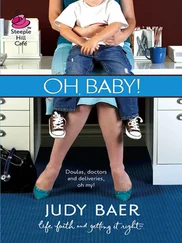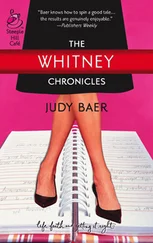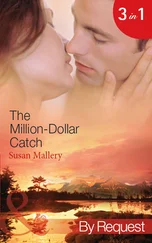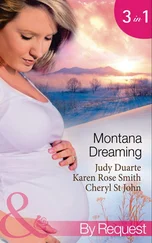The phone rang just as Adam put the frying pan in the dish rack to dry. He glanced at the caller ID. It was his agent and best friend, Terrance Becker.
“Adam, old man, you’re back! Listen, buddy, are you all right? I heard you had a pretty rough time over there.”
“No rougher than anyone else. At least I didn’t starve to death.” Sickening images shimmered in his mind like heat waves off the desert floor. Adam hadn’t known until recently how painful death from malnutrition could be.
“You did tighten your belt a couple notches, though,” Terrance said. “I talked to Frankie.”
Frankie Wachter was the photographer who traveled with Adam. He hoped Frankie didn’t have too big a mouth. Terrance didn’t need to know every gory detail of their trip to Burundi. There were some things Adam would just as soon keep under wraps. The wrenching emotions both he and Frankie had experienced were private. His research and articles could speak for him, and nothing else need be said.
“The magazine loved your stuff, by the way. You sent them so much that they’re serializing it. Frankie got some great pictures, too. Heart wrenching. Whenever you want to quit freelancing and write for just one publication, let me know, okay? I’ve got several offers for you.”
Adam grunted a non-comment. Being tied down had never suited him. As a journalist whose career had centered primarily on human rights issues, Adam wanted to be free to go where circumstance and instinct took him. Ironically, this last time it had taken him to one of the poorest places he’d ever been—Burundi, a landlocked country about the size of Maryland whose population had an overall life expectancy of less than forty-seven years, and 12 percent of whom were infected with AIDS. The tension between the Tutsis and the Hutus left the people in constant turmoil. It was a difficult life, especially for the youngest, most helpless members of society, the children. When Adam had gone in to do a story on a small relief organization that was attempting to provide minimal life-sustaining provisions for the people, he’d had no idea that what he would see and experience could so utterly change him.
Knowing the statistics was nothing compared to seeing the reality. If 70 percent of all malnourished people in the world were children and forty thousand a day died of starvation, then where were the people who could help them? Vulnerable, helpless and defenseless, the children had greater nutritional demands than the adults and were utterly unable to forage for themselves. At night, when the camp was silent, Adam had lain on his cot staring into the blackness, wondering what he could do to put a thumb in a dike of this magnitude. Life was leaking out of these young ones, and he had no way to stop it.
“So what are you planning next?”
Adam felt himself flinch. He’d drifted light-years away from Terrance and the conversation about his career. “Not a thing.”
“A little R & R? Good idea. A few days off and you’ll feel like a new man.” Terrance sounded worried. “That’s what you meant, right?”
“Not really. I’m burned and I’m bummed. The last thing I feel like doing is working.”
“You don’t have to cover every tragedy in the world,” Terrance told him. “Not everything you do has to be nominated for a Pulitzer. Lighten up. Do something not quite so heavy for a change, a little mind candy. How about a piece on baseball? Or music, like ‘Adam Cavanaugh on Aging Rockers— The Dolls, the Dope and the Depends.’ Boomers might eat it up.”
“Good try, but no thanks. I’m tired in a way I’ve never been tired before.” Wordsmith that he was, even Adam couldn’t describe it. “It’s in my bones this time. Watching children die and being absolutely helpless to stop it changes a person.”
“But like you said in your article, those kids were past the point of no return before you ever got to them.”
“That doesn’t make it any easier. Or prettier. Sorry, Terrance. This writer is taking time off—a long time. I haven’t got it in me anymore.”
“Just for a while…”
“Maybe forever.”
He heard Terrance’s sharp intake of breath and knew what was coming next.
“Promise me this, Adam. Before you throw in the towel, give it some time. Find a story to write that isn’t going to eat your heart out and see how that feels before you make any rash decisions.”
“That’s not going to help.” Something had broken in him that needed to heal—his heart. No story he could think of was going to distract him enough for that to happen.
“Just promise.”
“Only if something falls into my lap. I’m not going out to look for a fluff piece just to prove to you that I’m telling you the truth.”
“Think this through, Adam….”
“Gotta go. I’ll call you when that story comes knocking on my door.”
Adam stared at the phone a long time after he’d hung up. He couldn’t believe he’d just chopped away at the cable that had kept him connected to life for the past fifteen years, had brought him a Pulitzer and a myriad of other journalistic awards. But the import and meaning he’d always attributed to life, the idea of God, peace and goodwill on earth, humanity and brotherhood had all evaporated during his time in Burundi. Something was deeply wrong with a world in which a child could be born, live and die and leave no more impression than a raindrop in an ocean.
Why people think city living is so great is beyond me.
Everyone says things are so convenient here. Maybe, but I think it’s a little weird that I could order a pizza, a taxi and an ambulance at the same time and count on the pizza to come first. Of course, in Simms the rumor that you’re sick can arrive before the illness does, so maybe it’s, as Grandpa always said, “a horse apiece.”
I rode the brakes as I nosed my way into the right lane on I-494 and made ready to pull onto the exit ramp that led to the “shortcut” I’ve devised to get to work. Shortcut…hah! There’s no such thing. Not here, at least.
In Simms we talk in miles. If something is sixty miles away, it’s probably sixty minutes away, too, give or take a few, depending on the weight of my foot on the accelerator. Here, miles have no meaning, as far as I can tell. It takes me thirty-five minutes to get to work if I time it right and three times that in rush-hour traffic. I don’t know if I’ve driven five miles or fifty. I only know that it seems like a hundred.
I haven’t got it fine-tuned yet, but I’m getting there. I haven’t been late for work in a week and I’ve completely gotten over the urge to shriek every time I hit the gas and edge off an on-ramp into speeding traffic. I’ll just say this—more than once I’ve been thankful that I’m right with God when I’m pulling onto the freeway.
My car was a hand-me-down from my father, who got it as a hand-me-down from a parishioner. Actually, it probably belonged to a few people before that, as well. As pedigreed cars go, mine’s an elderly mutt, over eighty-four in dog years.
As I pulled into Parker Bennett’s parking lot I heard a yell from behind me. “Hey, lady, your muffler just fell off!”
I slowed and looked through my rearview mirror. I assumed it was a joke, but with my car anything is possible. Then I saw who was standing in the middle of the parking lot grinning with that gap-toothed grin of his. I’d met Randy Mills at work first, but I also ran into him at the church I attended a couple Sundays ago. How great is that? God gave me a Christian friend right off the bat. He’s a lean and lanky scarecrow kind of guy, with sandy hair and sandy freckles. I leaned out the window and waved before pulling into a parking space. By the time I’d gathered my purse and my lunch, Randy was standing arms akimbo, theatrically studying my tires.
Читать дальше












